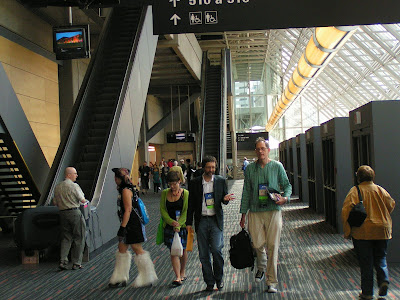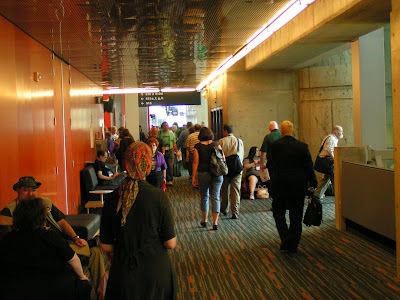I spent some of yesterday’s jet lag recuperation at home phoning round driving schools, to get an idea of lesson prices for Bonusbarn. BSM came up with a pretty good package of 6 hours on the simulator (in Cowley Road, though I don’t know if it actually simulates Cowley Road complete with innovative kerbless pavements), 10 hours on the road and a bundle of CDs to help you through your theory test, all for £300-and-something. But they also asked: What is your aim for these lessons?
My aim? Oh, let me see, I know this, um … it’s …
I WANT MY STEPSON TO LEARN TO DRIVE, YOU FOOL!
I want him to have this useful life skill.
I want him to kill or maim only the barest minimum of people when he gets behind the wheel of a car.
I would like him to break as few laws as possible.
Stop me if I’m going too fast for you.
Meanwhile, now I’m back in the country I thought I should check to see if I’m worthy of it. Apparently I’m not, scoring only 54% (13 out of 24) on the Practice UK Citizenship Test. Deary me. No matter that I can talk for hours on the history of our parliamentary form of government, or recite all the monarchs from Henry VIII onwards (and a good few before) together with a summary of the effect of their reigns on our way of life. No, what matters is that I know things like there are 15 million children and young people up to the age of 19 in the UK (which I got right – lucky guess).
It’s all multiple choice and the questions can be broken down into: 1) who cares? 2) give me a break and 3) wrong!
Example of (1): does it really matter when women got the right to divorce their husbands? 1857, if you were wondering. Example of (2): options for the afore-mentioned number of kids are 13, 14, 15 or 16 million, all of which seem like a reasonable guess. And 3): Many job applications will require a covering letter and: a document showing proof of identity; your NI number; a CV; or a signed photo. The approved answer is a CV. Cobblers. Many employers require you to fill in a form of their own devising, which requires your NI but specifically excludes a CV.
But, as with so many of our target-driven government’s obsessions, it’s not actually a test of good citizenship. It’s a test to see if you’ve read Life in the United Kingdom: A Journey to Citizenship Handbook, from which all the questions are drawn. Maybe, therefore, the actual questions in the test are, you know, RELEVANT.
Or maybe not.





